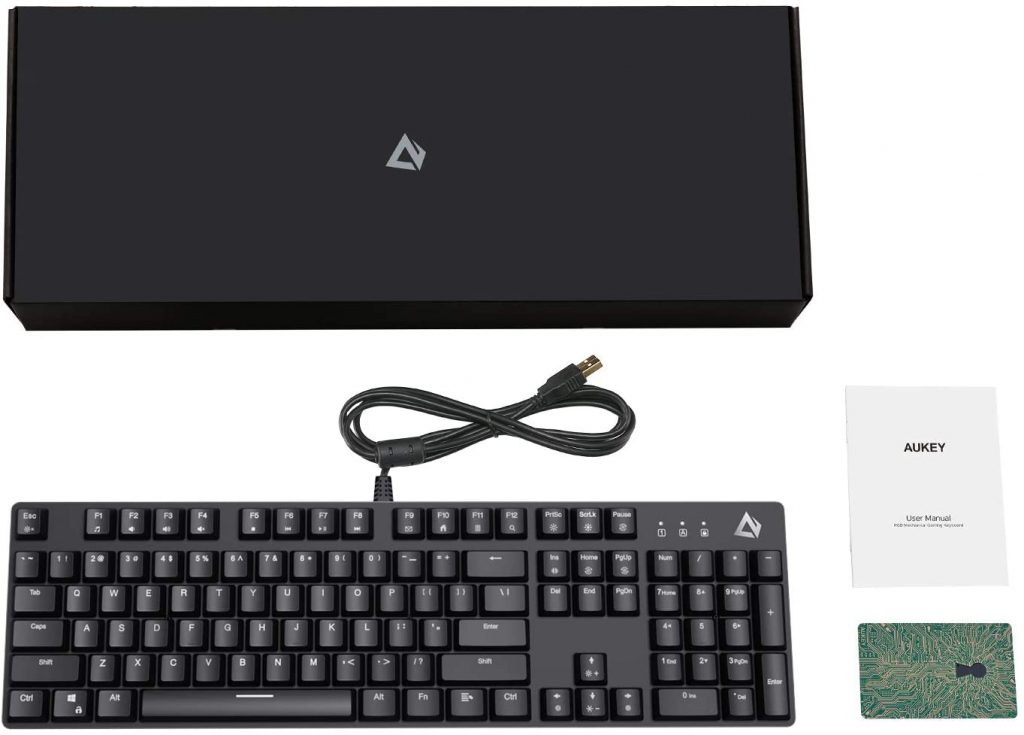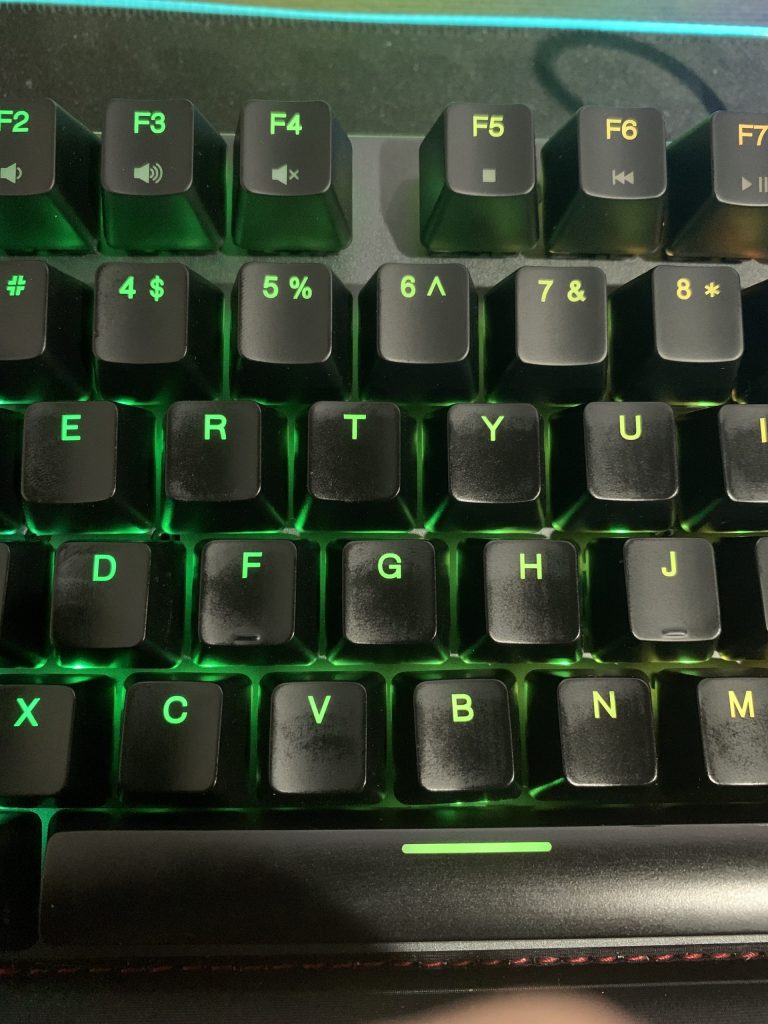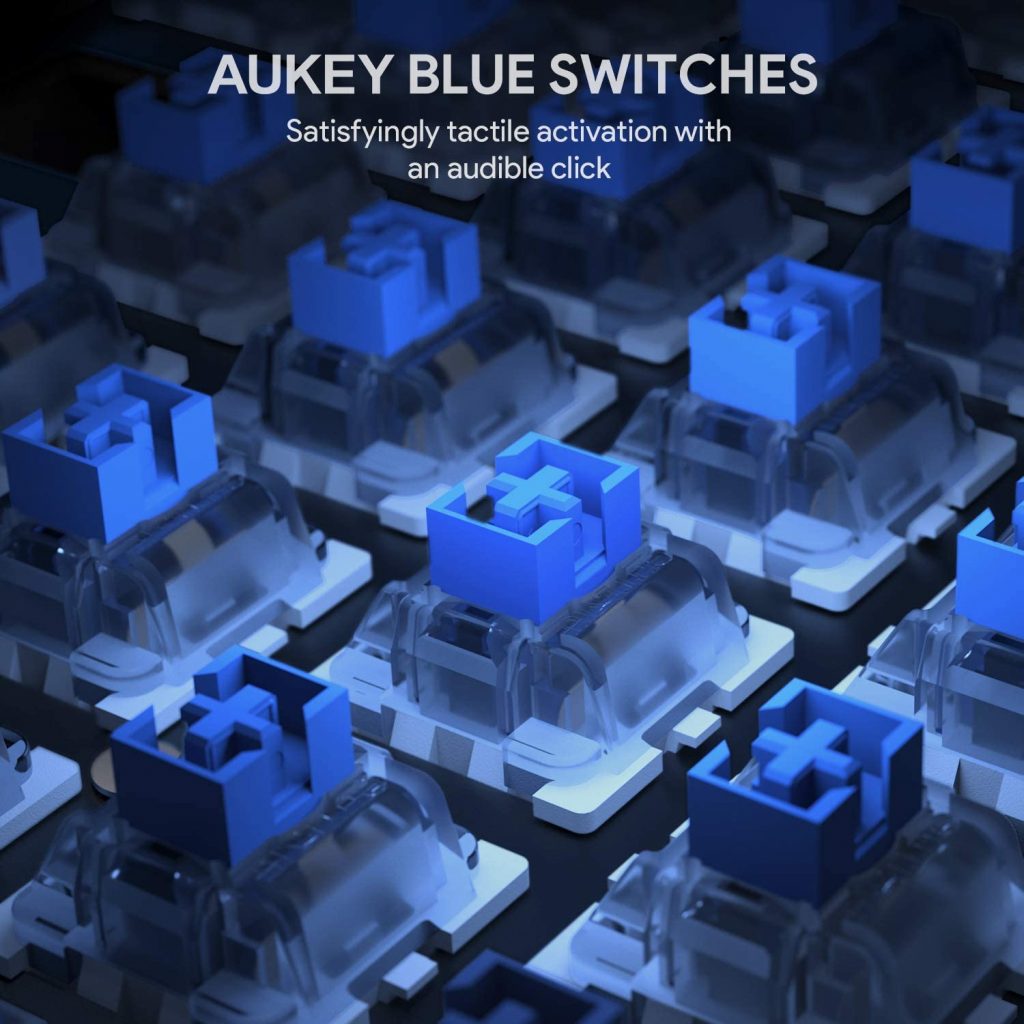Sometime back I was having a discussion with someone on reddit about the costs associated with PC gaming. In my head I viewed accessories as a rather substantial expense, something that makes sense when you figure our best overall and Xbox headset cost $250+, but for many that isn’t a reality. With substantially more economical models and plenty of products without needless features, things like the Aukey KM-G12 can actually offer a lot for very little. However, given some products fall short of expectations, is this a keyboard worth investing in or should you save a bit more?
When it comes to products, you can actually learn a lot from the packaging. In the case of the Aukey KM-G12 keyboard, two things are immediately apparent. This product was never meant for sale in a retail location and that Aukey understands this product is meant to appeal to more frugal shoppers. The box itself is simply the Aukey logo with some boilerplate and a model number on the bottom. Inside is the keyboard wrapped in Styrofoam, some additional Styrofoam to hold it in place, a rather beefy manual, keycap remover, and a sticker indicating it has a 24-month warranty.

At first glance, KM-G12 is an odd mixture of premium and budget. On top there is a sleek metal plate that actually looks, all things considered, rather appealing. Around the sides is a strip of LEDs, giving players an additional RGB effect to make it stand out or be a little more than just an effect for the top. Below is a plastic bottom and a stand to give it another height. Finally, the keycaps feel rather cheap and slippery to touch.
Upon plugging KM-G12 in, it’s a surprisingly dull keyboard. So much so that it makes a stark contrast to my other, substantially brighter, accessories. I had hoped it was the keycaps over the keyboard itself but even with the HyperX Pudding Keycaps it was very dull and feels rather lifeless. There is still enough light to make the colors and effects obvious, with some of the settings it is a bit more obvious but it makes for an underwhelming impression, even at the max, if you were hoping for a bright keyboard.

After even minimal use, I noticed a surprising amount of shine. I think it took about 30 minutes for it to appear on certain keycaps and I could quite honestly just rub the finish off in a couple of seconds. Thankfully, it isn’t pronounced enough to make it really apparent, though this might change after more extensive usage. What makes it stand out isn’t the actual shine of the keys, as much as the contrast between the matte look the keys initially had and the dull shine that quickly appears. Most of what I actually noticed was the finish rubbing off and seeing the two looks clashing. If nothing else, extended use should make them uniform or you can speed up the process by just rubbing every key or simply removing them.
Lookaside, it performs surprisingly well. Since it uses Aukey Blue switches, it’s a very loud keyboard and makes it very clear when you input a command. Everything registers fairly well and is quite responsive, whether it’s fighting someone in Destiny or simply typing a review. In this regard, it actually feels as satisfying to type with as a more expensive keyboard and it’s easy to forget some of the shortcomings when you type with it.

There are also some nice gaming-centric features, such as illuminating specific keys, software, if you’re interested in it, to further enhance it, a wide number of commands that can be used by the keyboard itself and important features like anti-ghosting.
Aukey KM-G12 Verdict
For so many reasons this is an extremely difficult product to review and it’s part of the reason why we tested it so extensively. At $65 it offers a more economical take on a mechanical keyboard and performs the core task of being a keyboard extremely well. Where it falls short is competition and side features. Simply put, for $45 more, assuming no sales, I can get something like the HyperX Alloy Origins, which sports a full metal frame, significantly brighter illumination, and a detachable cable in the event you need to replace it. For some, paying close to double is a hard sell, yet I’d argue it’s worth it. As much as the Aukey KM-G12 gets the job done, it feels less like a final solution and something closer to the placeholder unit.
[Editor’s Note: Aukey KM-G12 was provided to us for review purposes.]
